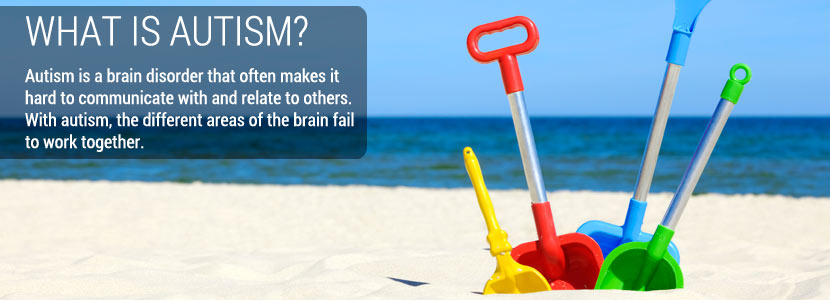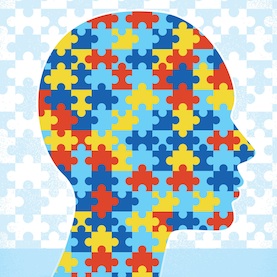
Children between the ages of 1 and 12 need any where from 10 to 14 hours of sleep per day. For children with autism, it can be difficult to get that amount of sleep. Studies estimate that between 40% and 80% of autistic children have difficulty sleeping. These difficulties can include problems falling asleep, inconsistent sleep routines, restlessness or poor quality of sleep, waking up early, or waking up many times.

Possible Causes
Unfortunately, doctors don’t yet know exactly what causes sleep difficulties in children with autism, but they have come up with several theories.
The first theory is that they could be missing the social cues that tell us it’s time to go to bed. For example, if you were a child and saw your sibling taking a bath, putting on pajamas, brushing their teeth, and reading a bedtime story, you’d probably gather that it is time for bed. Children with autism, however, may misunderstand those cues.
Another theory suggests that melatonin, the hormone that regulates sleep-wake cycles, is released at the wrong times throughout the day in children with autism. In order to make melatonin, the body needs an amino acid called tryptophan; studies have suggested that levels of tryptophan in autistic children is higher or lower than normal. Melatonin is usually released at night in response to darkness, but this isn’t always the case in children with autism.
Increased sensitivity to stimuli, like sound and light, could also account for their trouble falling asleep or repeatedly waking up. While most children could sleep through almost any sound or change in lighting, autistic children may awaken at the slightest sound or have trouble falling asleep with lights visible through a window.
The fourth theory suggests that anxiety can contribute to sleep troubles. Studies have shown that children with autism often have more anxiety than other children, which could cause them to have difficulties sleeping.
The Effects of Lack of Sleep
If a child with autism doesn’t get the correct amount of sleep it could cause aggression, depression, hyperactivity, increased behavioral problems, irritability, and poor learning and cognitive performance.
Lack of sleep for the child can also put a strain on the caregivers. Research shows that parents of autistic children report more trouble sleeping than other parents.
What You Can Do to Help
If you’re concerned that your child may not be getting enough sleep, or a good night’s sleep, you can talk to your child’s pediatrician. He or she may refer you to a sleep specialist or an ear, nose and throat specialist. Keeping a sleep diary for your child may help them evaluate the child’s sleeping patterns. There are a number of simple, natural things that you can do to help your child get a restful night’s sleep. Medications should always be used as a last resort for children.
There are several things you can do just before bedtime to help your child prepare for sleep. Avoid things with caffeine and sugar about an hour before bedtime, as well as stimulating activities like TV and video games. Create a nighttime routine – give your child a bath, read a story, and get them to bed at the same time each day. A gentle back massage or soft music may help them fall asleep. If your child is sensitive to light and sound, put up room darkening curtains to block out light, put carpet or rugs down in their room, and make sure the door doesn’t creak.
You can ask your child’s pediatrician about a melatonin supplement. This may help regulate your child’s sleep-wake cycles. You could also talk to a sleep psychologist about bright-light therapy; this therapy involves exposing your child to bright lights in the morning in order to regulate melatonin.
Source: www.WebMD.com
Be sure to subscribe to our emails so that you don’t miss out on blogs like this one!

© 2024 Autism Life Link